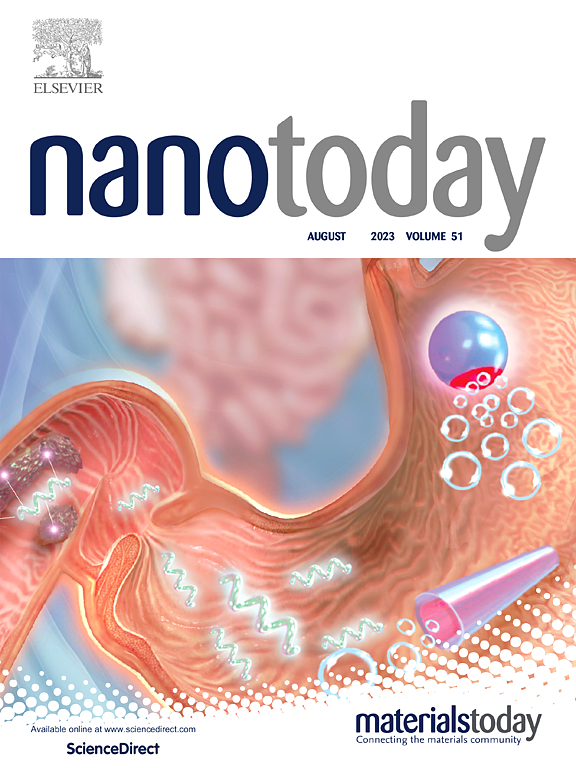In vivo engineering chimeric antigen receptor immune cells with emerging nanotechnologies
IF 13.2
1区 材料科学
Q1 CHEMISTRY, MULTIDISCIPLINARY
引用次数: 0
Abstract
Adoptive cell therapy with chimeric antigen receptor (CAR) has revolutionized cancer treatment in the past decade. Now several adoptive cell therapies are approved, and researchers are extending the application of adoptive cell therapy beyond oncology, such as autoimmune diseases, inherited blood disorders, infectious diseases and fibrosis. Evidence from clinical studies underscores the potential of cell therapy in cancer and noncancerous conditions. However, conventional manufacture of adoptive CAR-cell ex vivo is time-consuming and expensive in which immune cells are extracted from the patients, engineered to target cancer cells and reinjected to the body. The ways to produce CAR-cell in the body, as a promising alternative, may make the awfully expensive and personalized cell therapy more accessible. Here, we thoroughly summarize the current state of clinical trials on adoptive cell therapy, representing by CAR-T, CAR-nature killer cell (CAR-NK) and CAR-Macrophage (CAR-M), and highlight the latest advances in off-the-shelf nanocarrier- and virus-based in vivo CAR cargo delivery strategies, and corresponding precision targeting strategies, to provide a future perspective regarding in vivo engineering CAR-cell.
利用新兴纳米技术在体内制造嵌合抗原受体免疫细胞
过去十年间,采用嵌合抗原受体(CAR)的收养细胞疗法彻底改变了癌症治疗。现在,多种采用性细胞疗法已获得批准,研究人员正在将采用性细胞疗法的应用范围扩展到肿瘤以外的领域,如自身免疫性疾病、遗传性血液病、传染性疾病和纤维化。临床研究的证据强调了细胞疗法在癌症和非癌症疾病中的潜力。然而,传统的体外 CAR 细胞制造既耗时又昂贵,需要从患者体内提取免疫细胞,设计成针对癌细胞的细胞,然后再注射到体内。在体内制造 CAR 细胞的方法是一种很有前景的替代方法,它可以使昂贵的个性化细胞疗法变得更容易获得。在此,我们全面总结了以CAR-T、CAR-自然杀伤细胞(CAR-NK)和CAR-巨噬细胞(CAR-M)为代表的采用性细胞疗法的临床试验现状,并重点介绍了基于现成纳米载体和病毒的体内CAR货物递送策略以及相应的精准靶向策略的最新进展,以提供有关体内工程CAR-细胞的未来展望。
本文章由计算机程序翻译,如有差异,请以英文原文为准。
求助全文
约1分钟内获得全文
求助全文
来源期刊

Nano Today
工程技术-材料科学:综合
CiteScore
21.50
自引率
3.40%
发文量
305
审稿时长
40 days
期刊介绍:
Nano Today is a journal dedicated to publishing influential and innovative work in the field of nanoscience and technology. It covers a wide range of subject areas including biomaterials, materials chemistry, materials science, chemistry, bioengineering, biochemistry, genetics and molecular biology, engineering, and nanotechnology. The journal considers articles that inform readers about the latest research, breakthroughs, and topical issues in these fields. It provides comprehensive coverage through a mixture of peer-reviewed articles, research news, and information on key developments. Nano Today is abstracted and indexed in Science Citation Index, Ei Compendex, Embase, Scopus, and INSPEC.
 求助内容:
求助内容: 应助结果提醒方式:
应助结果提醒方式:


